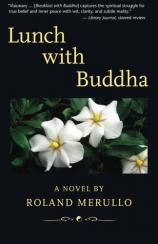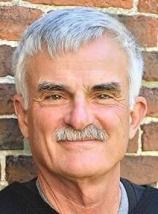Reading Group Guide
Discussion Questions
Lunch with Buddha

1. The main idea of this novel is a very somber one. How does the author use humor to soften it? Do you feel it’s appropriate to mix such a sad subject with humorous moments? Does it dilute or sharpen the reader’s empathy with Otto and his family?
2. How important is family in this story? At the end of the novel there is a shift where Rinpoche appears a bit less and other family members more. What did the author have in mind by doing this?
3. How does the author approach the sensitive subject of religious faith? Did you feel the book was ever “preachy”? If you have read Breakfast with Buddha, did you see any progression in Otto’s spiritual search? If so, how would you describe it?
4. What role does food play and does that role change at all as the book goes on?
5. What kinds of images and objects does Rinpoche use as spiritual lessons and do these work for you? Did you connect this with Emerson’s quote in the epigraph?
6. Is Rinpoche likeable and, if so, how is he made likea-ble? What don’t you like about him? About Otto?
7. This story is fiction, but it’s based on an actual road trip. In what way does that “factual skeleton” strengthen or weaken the novel? There are photos of the trip on the website. Did you choose to look at them? Did they correspond to the written descriptions in the book?
8. What are your thoughts about Shelsa? Landrea? Gilligan Neufaren? Rundy? Jarvis Barton-Phillips? What role or roles do these minor characters play in the novel?
9. It’s a risk to end a book with a solitary retreat. Was it effective for you? Did it fit the rest of the novel?
10. What role does Cecelia play in Otto’s spiritual education? Does his opinion of her change as the novel progresses?
11. What roles do Otto’s children play? How are they different?
12. What do you think of Rinpoche’s talk in Spokane? Did your opinion of it change as the book went on?
13. Is there an effort here to make a distinction between Otto’s spiritual search and the “powers” that someone like Landrea has? Is there a difference between her contact with Jeannie and Otto’s contact with Jeannie?
14. What role does the Spokane transgendered person play? When she speaks of troubles, and when Rinpoche mentions his worrisome dreams—where do you think that could lead in the future?
15. Why does the author mention roadside signs and radio programs so often?
16. If you read Breakfast with Buddha, how is Lunch with Buddha the same, and how is it different? Would you be interested in having Dinner with these characters?
Lunch with Buddha
- Publication Date: November 13, 2012
- Genres: Family, Family Life, Fiction
- Paperback: 392 pages
- Publisher: AJAR Contemporaries
- ISBN-10: 0984834575
- ISBN-13: 9780984834570








